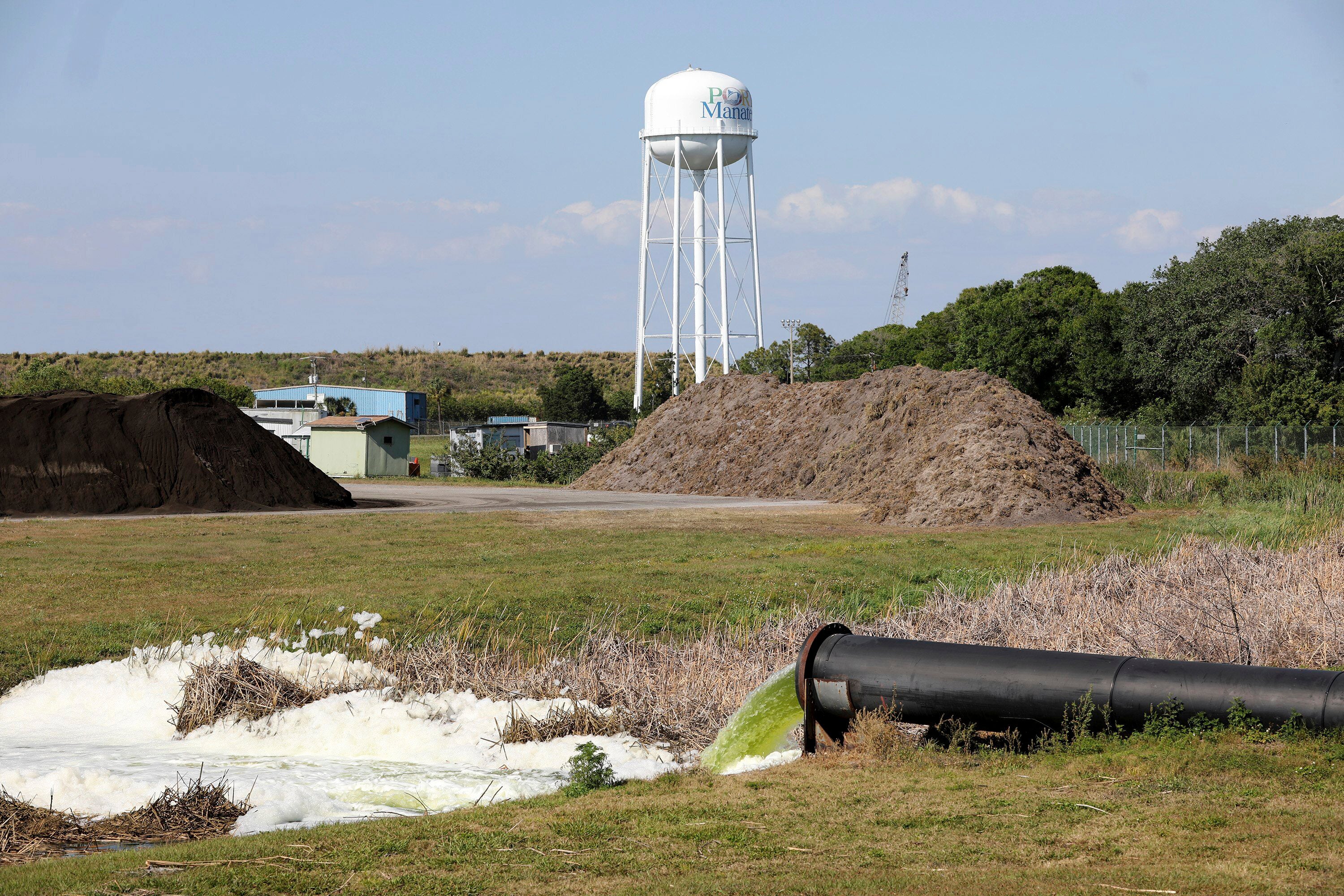Florida to close wastewater reservoir with leak history
Gov. Ron DeSantis says Florida will permanently close the leaky Piney Point reservoir that poured millions of gallons of wastewater into Tampa Bay while threatening to burst open and flood nearby homes and businesses

Your support helps us to tell the story
From reproductive rights to climate change to Big Tech, The Independent is on the ground when the story is developing. Whether it's investigating the financials of Elon Musk's pro-Trump PAC or producing our latest documentary, 'The A Word', which shines a light on the American women fighting for reproductive rights, we know how important it is to parse out the facts from the messaging.
At such a critical moment in US history, we need reporters on the ground. Your donation allows us to keep sending journalists to speak to both sides of the story.
The Independent is trusted by Americans across the entire political spectrum. And unlike many other quality news outlets, we choose not to lock Americans out of our reporting and analysis with paywalls. We believe quality journalism should be available to everyone, paid for by those who can afford it.
Your support makes all the difference.Florida is moving to permanently close the leaky Piney Point wastewater reservoir that poured millions of gallons of water into Tampa Bay while threatening to burst open and flood nearby homes and businesses, Gov. Ron DeSantis said Tuesday.
The Republican governor said at a news conference at the site that the chronic challenges of containing polluted water at the long-closed phosphate plant must end.
“We want this to be the last chapter of the Piney Point story,” DeSantis said.
The reservoir is located just south of Tampa in Manatee County near waterways that flow into Tampa Bay.
The governor said he has directed the Department of Environmental Protection to develop a closure plan, and that $15.4 million in existing agency funds would be used to treat the wastewater to reduce the nutrients that can cause algae blooms and fish kills.
When a leak developed at the site this month, in a reservoir that once held 480 million gallons (1.9 million liters), experts fearing a collapse triggered the evacuation of more than 300 homes, businesses and farms in the area.
The worst was avoided as engineers rushed in vacuum trucks and other equipment to furiously pump out wastewater, relieving the pressure. Crews also installed a steel plate at the leak site to prevent additional flooding from a seam in the reservoir’s plastic liner.
The reservoir contains what are called phosphogypsum stacks, a leftover from the phosphate mined for fertilizer. Officials say the water contains nitrogen, phosphorus, ammonia, and small amounts of radium and uranium, but is not radioactive.
There are about two dozen other similar phosphate waster reservoirs in Florida, according to the U.S. Environmental Protection Agency. They hold about 1 billion tons of phosphogypsum stacks similar to those at Piney Point. The EPA also says about 90% of the nation's phosphate is mined in Florida, North Carolina and Tennessee.
Noah Valenstein, the Florida DEP secretary, said the state also plans to sue HRK Holdings, which bought the property in 2006 and promised a cleanup. Instead, the company filed for bankruptcy following a 2011 spill of 170 million gallons.
“Stay tuned for litigation,” Valenstein said. “This is it. The site has to be closed.”
Wilton Simpson, the Republican president of the Florida Senate, said lawmakers would work to fully fund the cleanup and closure of Piney Point. The Legislature is currently in session.
“By the end of session, we'll have a closure plan,” Simpson said.